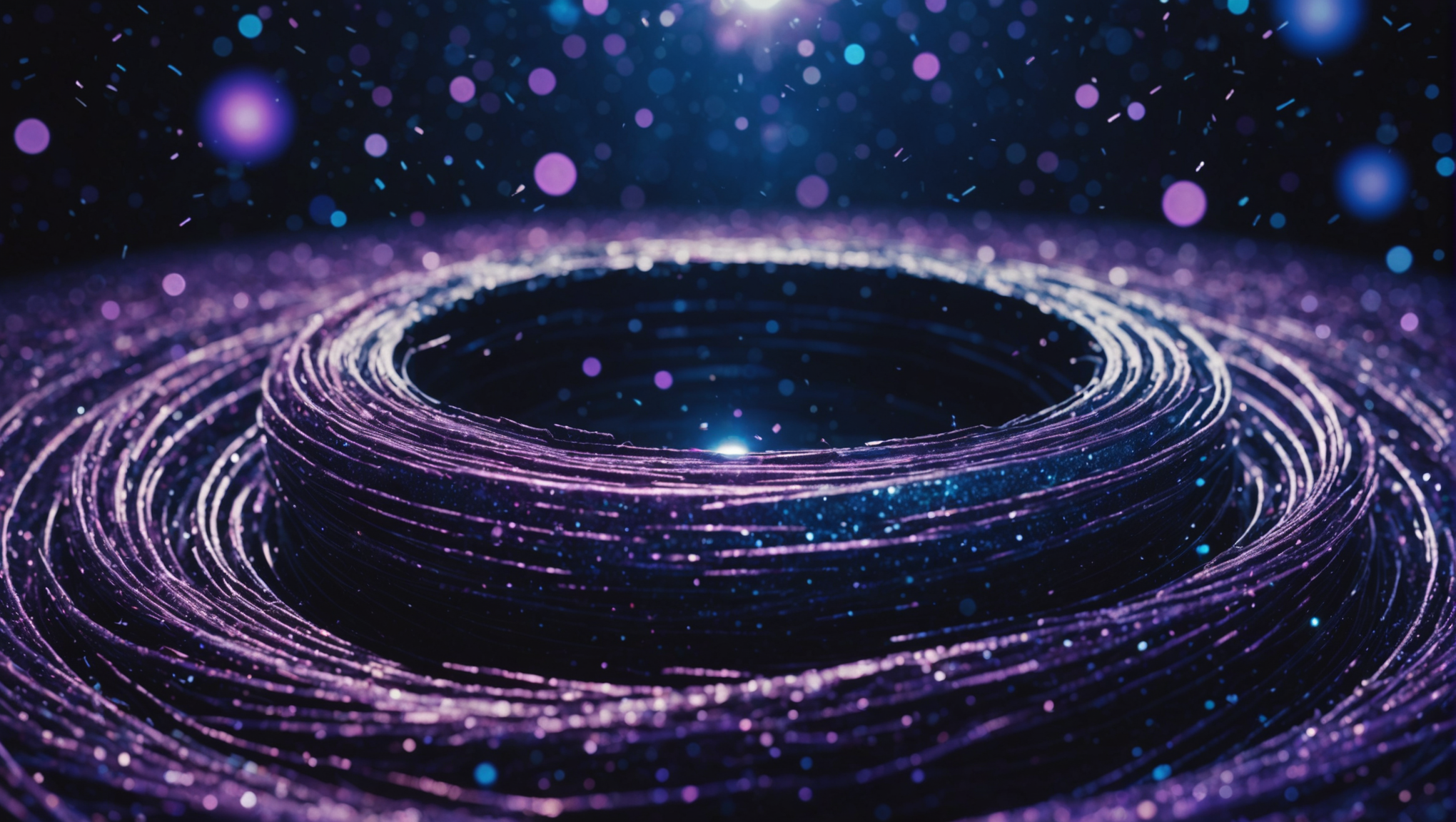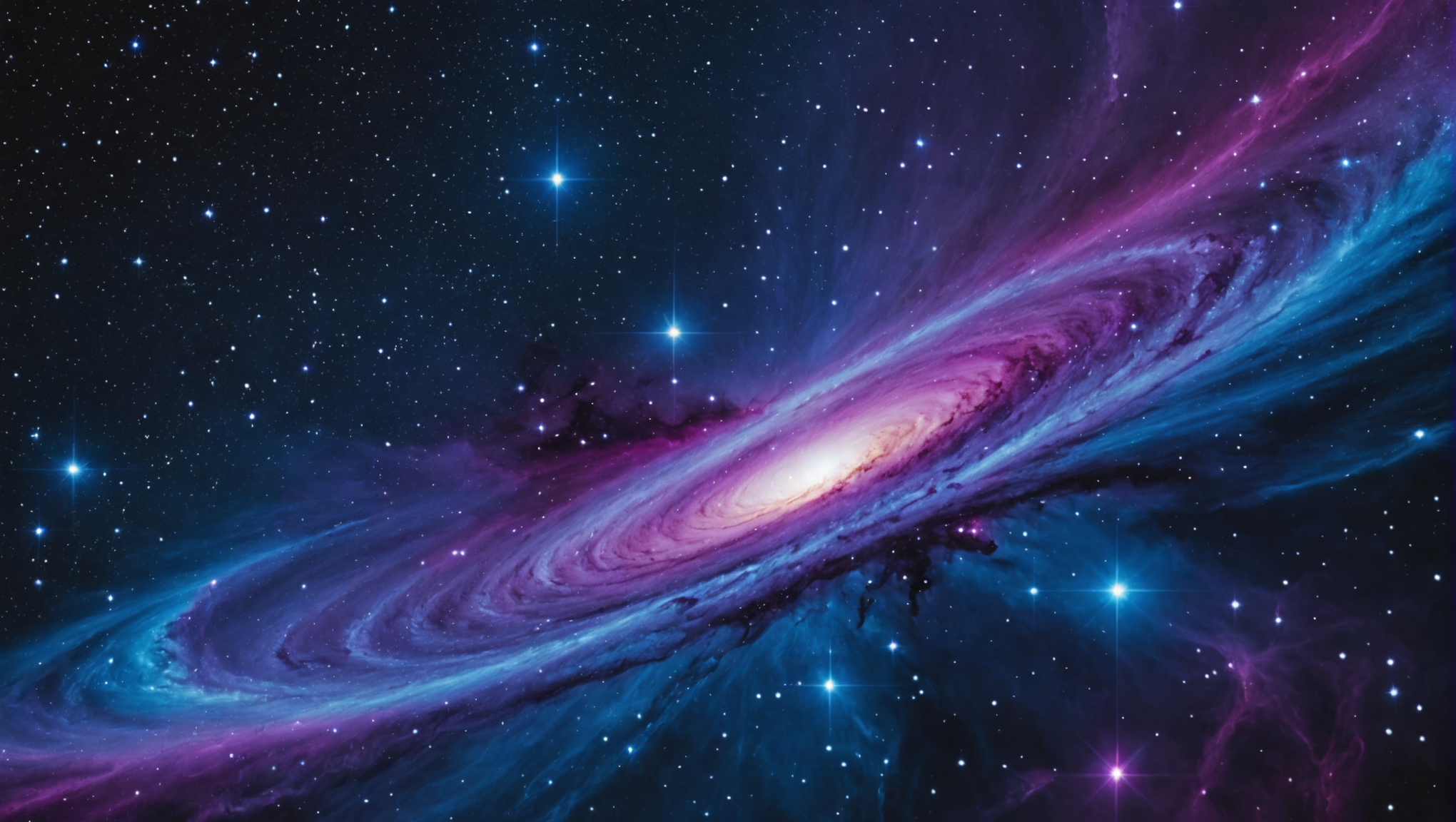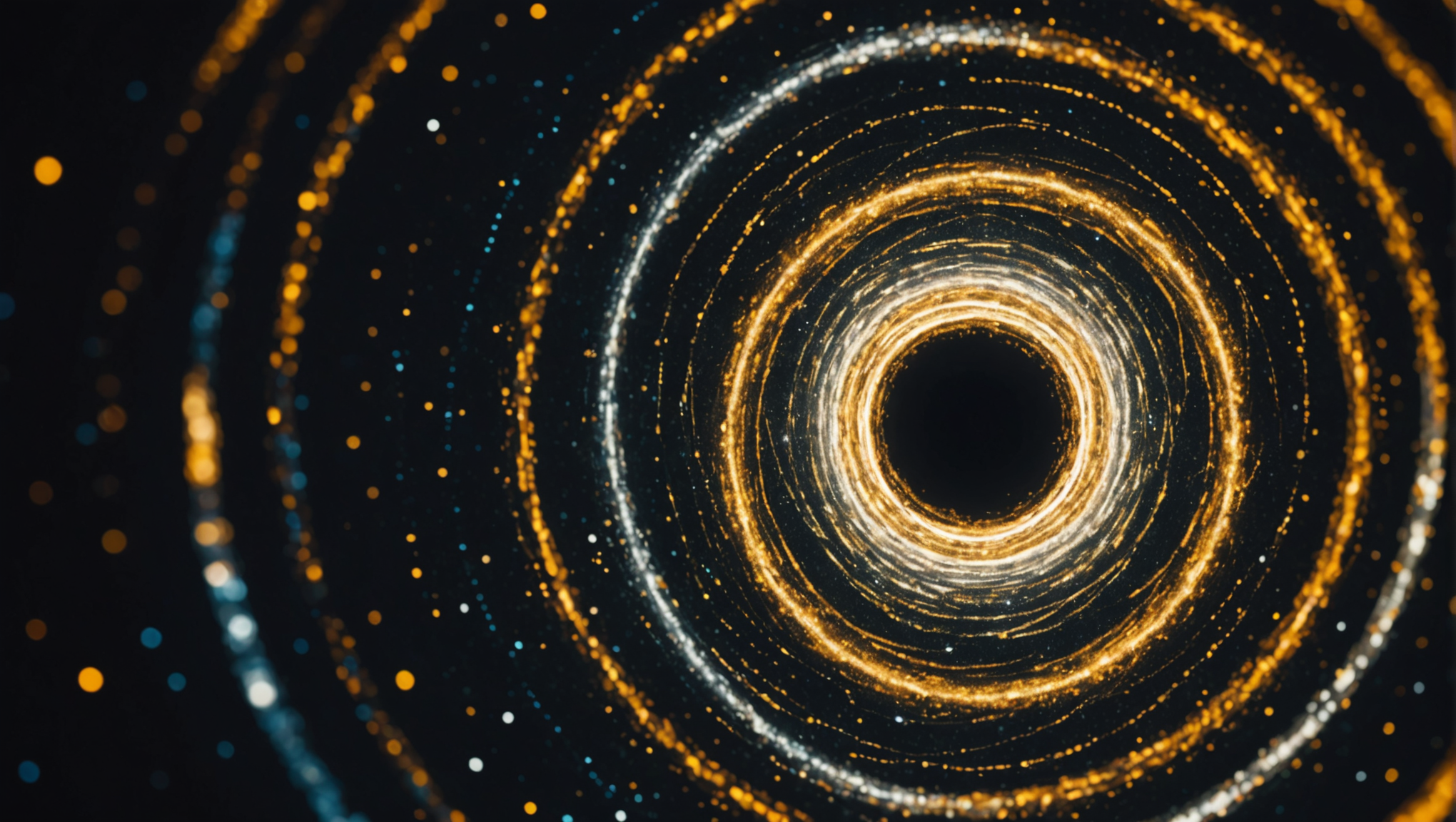Before the Dawn of Time: A Cosmic Reflection

What Existed Before the Big Bang
Before the universe as we know it came into being, a tantalizing specter looms—what existed before the Big Bang? This question lingers at the very edge of cosmic understanding, inviting both scientific inquiry and profound philosophical speculation. As we probe the depths of time and space, our exploration may lead us to redefine not only our understanding of the universe but also our very notions of existence itself.
The prevailing model, the Big Bang Theory, posits that around 13.8 billion years ago, the universe began as an incomprehensibly hot and dense singularity, subsequently expanding into the cosmos we observe today. However, contemplating a precursor to this explosive event necessitates grappling with the very fabric of reality—where traditional concepts of time and space may fail to apply. When we speak of “before,” we are left questioning the very meaning of time itself. Did time exist? And if it did not, what relevance does the question have?
One intriguing proposal arises from the idea of cosmic inflation, which suggests that the universe experienced an extraordinary burst of expansion moments after the Big Bang. This theory primarily explains the rapid alterations that occurred immediately following the creation of the universe, rather than offering clues about what preceded it. Yet, it opens doors to possibilities about the conditions that could have existed in a hypothetical prior state. Were there other universes, perhaps, undergoing their own cycles of birth and rebirth, endlessly intertwined in a grand cosmic dance?
Many scientists advocate for a cyclic model of the universe, where our universe could be just one phase in an infinite series of expansions and contractions. In this view, the Big Bang is not a unique event but rather part of a continuous loop—each cycle collapsing back into a hot, dense state, only to spring forth anew. This notion echoes through the realms of ancient philosophies, where the universe was often viewed not as a linear time frame but as an eternal cycle, a dance of creation and destruction that shapes existence itself. Such models challenge the concept of a definitive beginning and suggest a universe that is endlessly recycling itself, evoking thoughts of ancient myths about cosmic rebirth.
Quantum mechanics introduces yet another layer of complexity to these discussions. At the heart of quantum fluctuations lies a dynamic interplay of particles that can momentarily materialize from a vacuum, hinting that “nothingness” is not truly empty. Instead, it is a bustling arena of potential waiting to be realized. Could it not be possible that our universe emerged from an underlying quantum field, bursting into existence as a result of these fluctuations? In this speculative reality, the boundaries between nothing and something begin to blur, challenging our conventional understanding of existence.
The notion of a multiverse also tantalizes the imagination, proposing that our universe is merely one bubble in a vast sea of universes—each with its own distinct laws of physics and properties. If this is the case, then the Big Bang might be only an isolated incident within a grander scenario where countless alternatives are constantly in flux. This perspective invites us to envision a cosmic landscape rich with variation, suggesting that what existed before our universe could be an amalgamation of myriad realities, all governed by rules we have yet to decipher.
And yet, as we dive deeper into what existed before the Big Bang, we must confront not only the scientific implications but also the philosophical ramifications of our quest. If time, as it’s understood, began with the Big Bang, then how do we conceptually grasp a state beyond it? Such considerations compel us to embrace uncertainty, recognizing the limits of our knowledge while at the same time urging us to explore the intricacies of existence. It’s in these philosophical inquiries where the intersection between science and philosophy flourishes, illuminating the dance between evidence and speculation.
The endeavor to unearth the enigmatic nature of what existed before the Big Bang ultimately invites a rich tapestry of thought that stretches far beyond empirical data. We find ourselves at the confluence of science and philosophy, where each step toward understanding leads to unexpected questions and deeper contemplation of our place in the cosmos. As we traverse this intricate path, we are reminded that our exploration of existence mirrors our deepest human desires—to seek understanding, to connect, and to find meaning in the grand cosmic ballet that enfolds us all.

The Nature of Nothingness
The essence of nothingness has intrigued thinkers across civilizations and philosophies. It is a concept that defies simple definition; to fathom nothingness requires not only an understanding of what exists but also a willingness to explore what lacks presence. Philosophers have long grappled with the idea of nothing, often positing that it cannot exist in a true sense. Parmenides famously argued that to speak of nothingness paradoxically implies the existence of thought itself, so nothing cannot be conceived. This critical examination leads us to confront the ungraspable: can one truly conceive an absence devoid of attributes?
In contrast, contemporary physics introduces a new interpretation of nothingness, particularly within the framework of quantum mechanics. It suggests that what we perceive as “empty space” is anything but void. Instead, it vibrates with potentiality—quantum fluctuations manifesting as particles that appear and vanish in a brilliant cosmic dance. This phenomenon entails that even in the absence of observable matter, there exists a web of energy and particles popping into and out of existence, giving rise to the intriguing notion that nothing is, in fact, a state teeming with possibility. Thus, in the quantum realm, “nothing” can actually give rise to “something” under the right conditions.
This raises profound questions: If nothing can yield something through quantum mechanics, does this redefine our understanding of creation itself? Traditionally, we often think creation as a deliberate act—something emerging purposefully from the void. However, the principles underlying quantum mechanics suggest that creation might be an inherent property of the universe, where the potential for existence exists in a continuous state, unfurling based on unseen probabilities. In essence, this must challenge long-held notions that stipulate a clear demarcation between existence and non-existence, time and timelessness.
As we reflect upon nothingness philosophically, we are compelled to consider its implications for our understanding of the universe’s origins. If our universe emerged from a state of quantum vacuum, we must reconsider not only when existence began but how it transitioned from a dormant state into the vibrant, dynamic cosmos we observe today. The implications of quantum fluctuations suggest that the early universe might not have simply “popped” into being; rather, it emerged organically from the inherent properties within quantum vacuum conditions. This nudges us to consider that the universe itself might exist not as an isolated structure but as an intricate part of a grander cosmic tapestry that transcends our current definitions.
Furthermore, to grapple with the idea of nothingness also means addressing philosophical dimensions of existence that resonate with many religious and metaphysical paradigms. Many cultures have myths of creation from a void, where the initial state is often described as a formless nothingness before divine action occurs. This echoes the quantum idea of existence emerging from a vacuum—an inherently dynamic void filled with potential. The familiar creation narratives recounted across various spiritual traditions find an unexpected ally in modern scientific thought.
Delving into these intersections reveals how cultural interpretations of nothingness impact our philosophical inquiries. In Eastern philosophies, for instance, the notion of Shunyata, or emptiness in Buddhism, challenges adherence to permanent entities, offering a pathway through the realm of non-attachment to concrete existence. By contemplating emptiness, individuals are invited to experience a reality where existence flows, echoing the chaotic yet harmonious patterns observed in quantum mechanics. This philosophical unearthing can inspire modern thinkers to transcend rigid categorizations of nature and existence, embracing complexity.
Ultimately, the multifaceted exploration of the nature of nothingness enriches our understanding of existence by prompting questions about causality, creation, and the intricate dance of potentially infinite realities. As we untangle the cosmic narrative of origins through lenses of philosophy and science, we begin to see that nothingness is not just a void awaiting definition—it is a fascinating field, branching out into diverse possibilities, waiting to be explored. Thus, the quest for understanding the nature of nothingness becomes not just an inquiry into the cosmos but also a deeply personal exploration into the very essence of our existence.

Theories and Models of Cosmic Origins
Throughout history, various theories and models have emerged that attempt to elucidate the origins of our universe, igniting both scientific inquiry and philosophical debate. One pivotal notion in modern cosmology is the Big Bang Theory, which posits that our universe originated from an incredibly hot and dense state nearly 13.8 billion years ago. This singular event not only marks the beginning of space but also our understanding of time. However, as we venture into the depths of what might have preceded this moment, we uncover a rich tapestry of competing ideas that challenge conventional views.
One of the most compelling alternatives to the Big Bang scenario is the concept of cosmic inflation, which suggests an exponential expansion of the universe just moments after the initial explosive event. This theory primarily addresses the rapid alterations during the universe’s infancy, yet it remains speculative regarding what existed immediately before this expansion. Nevertheless, the implications of inflation lead us to think a reality where prior conditions may have laid the groundwork for the universe’s inception—pointing to potential cycles of expansion and contraction that challenge the uniqueness of the Big Bang.
Within this framework, some theorists advocate for cyclic models of the universe, proposing that our cosmos is one in an infinite series of expansions and contractions. In these models, each Big Bang is merely one occurrence in an ongoing cycle where the universe collapses back into a singular state before bursting forth again. This perspective provides a historical continuum of cosmic rebirth, reminiscent of ancient philosophies that held a cyclical view of reality—a concept explored in myriad myths and spiritual teachings.
Another framework that challenges linear narratives of cosmic history is the Multiverse Theory, suggesting that our universe might be just one of countless others within a vast multiverse. Each universe could have its own unique physical laws and constants, casting the Big Bang as an isolated event within a broader cosmic landscape of variability. In this vision, the cosmos transforms into a fertile ground for many potential realities, each sprouting from myriad possibilities that swarm within quantum states. This paints a picture far more complex than our singular universe, challenging our assumptions about existence itself.
Quantum physics, particularly quantum fluctuations, introduces yet another layer of intrigue. At the smallest scales, particles can appear and disappear from what physicists describe as a quantum vacuum. This phenomenon suggests that what we perceive as ‘nothing’ is not empty but rather a vibrant field of potential ready to spring into existence under the right conditions. In this scenario, the emergence of our universe from a chaotic quantum state teases the fabric of reality, blurring the division between something and nothing, as well as raising questions regarding the initial impetus for creation and whether it is an inherent aspect of the universe.
The interplay of these theories does not merely reside in the sphere of science alone; it demands philosophical inquiry about existence, causation, and what it fundamentally means to be. If both time and reality emerged from conditions that we cannot yet fully comprehend, then the implications for our understanding of existence are profound. As we explore these theoretical landscapes, the questions of ‘what was there before’ and ‘how does anything exist’ find fertile ground in the nexus between science and philosophy, nurturing rich discussions that encourage a re-examination of our place in the cosmos.
In navigating through these various propositions—from inflationary theory to the cyclic cosmos, and the multiverse existence—each avenue encourages a deepening of our understanding, a complex interplay of vibrant possibilities that emphasizes the interconnectedness of all things. The quest for knowledge surrounding the origins of the universe thus transforms into a profound exploration of existence itself, urging us not just to ask why there is something rather than nothing, but also to reflect on how our individual journeys intersect within this magnificent and intricate cosmic tapestry.
Philosophical Implications of Existence and Time
As we engage with the philosophical implications surrounding existence and time, we are invariably drawn into a labyrinth of profound questions and abstract concepts that challenge the very core of our understanding. At the heart of this discourse lies the nature of time itself—how it’s perceived, defined, and how it has evolved alongside our comprehension of the universe. The notion that time might have begun with the Big Bang forces us to confront an unsettling paradox: if time itself was birthed from this monumental event, what exists beyond the temporal boundaries that we understand?
In traditional frameworks, time is viewed as linear, with a clear progression from past to future—a narrative where events unfold in a simpler sequence. Yet contemplating pre-Big Bang scenarios invites us to rethink this linearity. Some contemporary theories posit that time may not behave in a rigid manner but rather exists in a more fluid, interconnected state, potentially allowing for cyclical or even non-linear realities. Philosophers have long wrestled with notions of eternity, simultaneity, and the implications such perspectives might have on our understanding of existence, suggesting that the past, present, and future could converge in ways that escape standard temporal perceptions.
This fluidity opens the door to innovative theories that stretch far into the realm of speculative cosmology—like the ideas surrounding a cyclic universe, where time itself can be viewed as a perpetual cycle of birth, death, and rebirth. In this model, the universe expands and contracts indefinitely, raising questions about whether our understanding of beginnings and endings is far too narrow. Rather than framing existence within a fixed timeline, a cyclical model encourages us to think how cosmic events influence one another across epochs, where the stuff of the universe has a recycling nature that echoes resilience.
Moreover, the implications of quantum mechanics further embolden this philosophical inquiry into time. The world of quantum states reveals phenomena that directly challenge the classical notions we hold closely. For instance, the idea of ‘quantum entanglement’ showcases connections between particles that exist independent of space and time. When particles become entangled, they remain interconnected regardless of the vast distance separating them. This peculiar phenomenon leads us to question whether time itself could be similarly interconnected, forming a complex web that transcends our linear comprehension.
The implications of these entangled realities push us to consider the very fabric of existence, where distinctions between past, present, and future get shaky at best. How we understand our role in the narrative of the universe must be reassessed; if time is not an absolute force but rather one of many dimensions affected by cosmic events, we may need to rethink how we perceive individual and collective experiences. Can existence be richer than the mere timeline we traverse, instead encompassing a grander, more complex structure where our memory, identity, and interactions might ripple across the timeline in unpredictable ways?
This philosophical exploration extends to the question of consciousness. If the universe is interconnected in ways we are just beginning to grasp, what does this imply for our understanding of human consciousness? In what ways might our awareness and existence be more deeply woven into the cosmic fabric, with consciousness acting as not merely an isolated phenomenon but as an integral part of a broader cosmic narrative? Philosophers like David Chalmers have contemplated this, suggesting that consciousness itself may act as a fundamental aspect of reality, potentially influencing the unfolding of the universe in unexpected avenues. This raises compelling questions about the responsibility humans hold not just to ourselves but to the universe at large.
The dialogues between scientific inquiry and philosophical contemplation regarding existence and time continually inspire new perspectives on what it means to be human. This quest does not promise clear answers but rather unravels the beauty of complexity and invites deeper introspection. Every attempt to probe into the nature of existence leads us through an intricate web of relationships, challenging us to generate meaning from the vast unknown and emphasizing an interconnectedness that binds us collectively within the cosmos.
Thus, as we navigate the philosophical currents pertaining to existence and time, we are reminded that the answers we seek often lie beyond the confines of rigid structures. The dialogue encompasses not just the infinite possibilities of the universe, but also the inherent values embedded in our quest for understanding—compelling us to embrace curiosity, risk uncertainty, and revel in the ongoing journey of inquiry into the great cosmic mystery. Ultimately, the interplay between existence and time reflects our deep-seated need to connect, understand, and find meaning within the vastness of our universe.